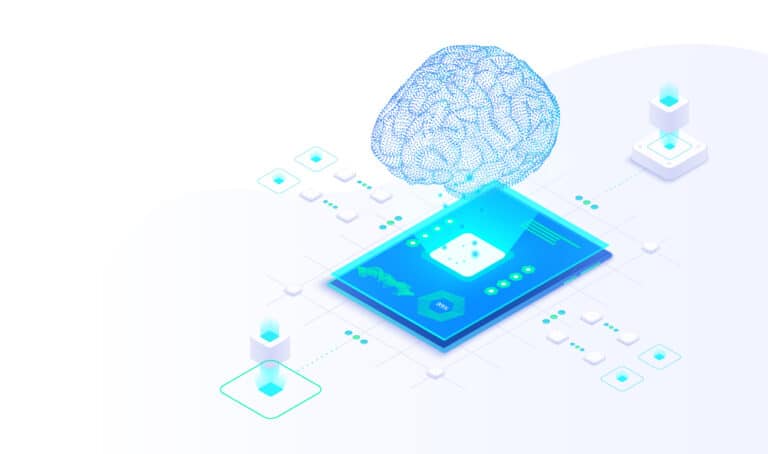Our Blog
It’s rare that a day goes by without new headlines singing the praises or debating the challenges of artificial intelligence (AI), machine learning (ML), and deep learning. Many industries have transformed, thanks to these technologies, and the recruiting industry is no exception. AI can already parse an avalanche of resumes faster than you can take a selfie — which raises the question: How will AI continue to affect recruiters going forward?
AI has the ability to perform many repetitive tasks traditionally performed by humans. It is capable of looking beyond resumes to identify ideal candidates, understanding their skills and abilities in more depth by gathering information from databases, social media platforms, Github, AngelList, Google Scholar, and other sources. Better still, in the utopian world, we’re working toward, AI won’t be swayed by bias; it will look solely at the data.
Fear not. The robots aren’t coming to replace recruiters anytime soon, if ever. It’s true some processes are being automated away or rendered obsolete, but they are often tedious, mundane tasks recruiters are thrilled to delegate to their new robot colleagues.
We live in exciting times. In the years ahead, we will witness the evolution of the talent acquisition landscape from data-driven to intelligence-driven methods. AI will transform the recruiter’s role, taking on many time-consuming, repetitive tasks while amplifying those that require a human touch.
Here are five ways AI will transform recruiting through a symbiosis of the human and machine side of talent acquisition:
1. Analyzing Language Aptitudes Through Natural Language Processing
Communication style is a key indicator of an individual’s character. Natural language processing (NLP) tech can inspect the fluency of one’s speech, pronunciation, vocabulary, and even the progression of ideas on one’s resume. By analyzing a candidate’s speech and writing patterns, AI can give recruiters deep insight into the candidate’s personality.
NLP can be especially helpful in evaluating a candidate’s aptitude in foreign languages, or in assessing how engaging individual sounds on the phone — an indispensable benefit to recruiters looking to fill positions that require a lot of speaking with clients.
2. Streamlining the Application Process With Chatbots
Chatbots enable 24/7 instantaneous communication with potential candidates. Chatbots can be programmed to initiate conversations with every candidate who visits a company’s career site, guiding those candidates through the application process. As the candidate progresses through the application, the bot can regularly check in to answer questions, clarify instructions, and offer additional information.
Using NLP, bots can also interpret a candidate’s responses in search of evidence of desired skills. This allows bots to ask questions to fill in any gaps on a candidate’s resume, producing a more holistic view of the applicant’s qualifications.
3. Enabling Greater Insight Into Cognitive and Emotional Capabilities Via Gamification
Neuroscience games are making quite an impact in the hiring industry, particularly for their ability to detect soft skills that aren’t always easy to uncover through traditional hiring assessments, such as a candidate’s willingness to take risks. These assessments can give recruiters a sense of how quickly candidates process information and how well they plan projects. All in all, recruiters walk away with a deeper, more holistic understanding of their prospects.
4. Facilitating Deeper Connections With Candidates
AI may be the driving force of the future of recruiting, but it cannot literally hire anyone. That requires establishing relationships with candidates and taking time to understand each one on a more granular level.
As AI tackles more of the repetitive tasks, recruiters gain more time to connect with candidates on the human level. They can dig deeper into candidates’ goals, career paths, and expectations, allowing for more informed hiring decisions based on alignment between candidate and company. When a hire is made, the employee will join the team with strong relationships already in place, which is likely to lead to higher retention rates.
5. Personalizing Candidate Outreach
Most companies today work from a single employee value proposition (EVP). However, AI will pave the way for hyper-personalized candidate outreach by enabling companies to develop thousands of target candidate personas. The organization’s overarching EVP can then be broken down into different forms, according to what resonates most with each persona. Organizations can draw on these more specific EVPs to put tailored messages in front of each and every candidate.
Using intelligent targeted marketing, companies can make sure the right EVPs are placed in front of the right candidates. For example, one of your candidates may be a future homebuyer. An AI outreach assistant might suggest you communicate to this candidate any benefits your company offers around homeowner loan programs. For candidates with children, the outreach assistant might recommend you discuss childcare and insurance benefits.
Staffing Future specialize in the development and deployment of staffing website designs along side industry leading technical consultancy tailored specifically for the global staffing industry. Together with integrated technology stack solutions and partnership technology, we provide measurable return on investment through innovation and pro-active management services.
